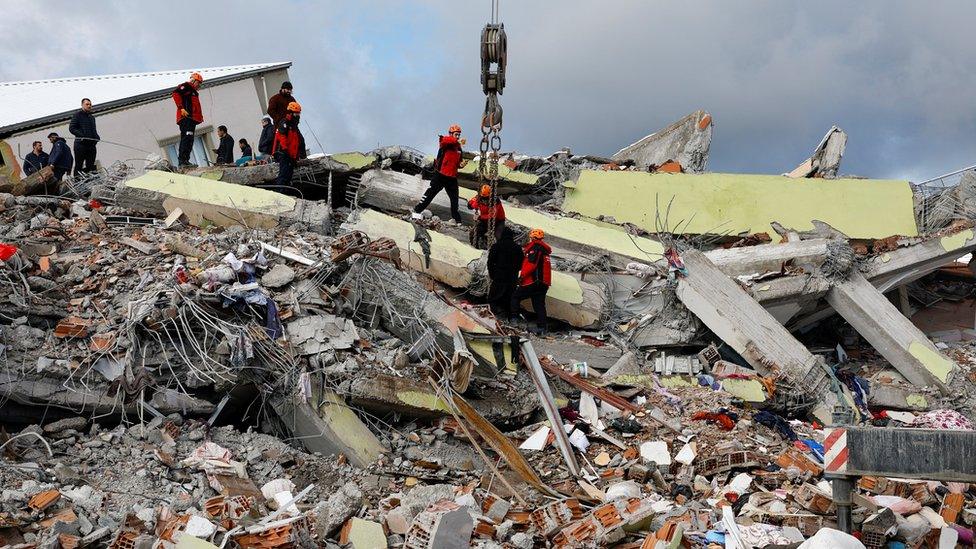We'll never forget destruction of Turkey earthquake - Scots rescuers
- Published
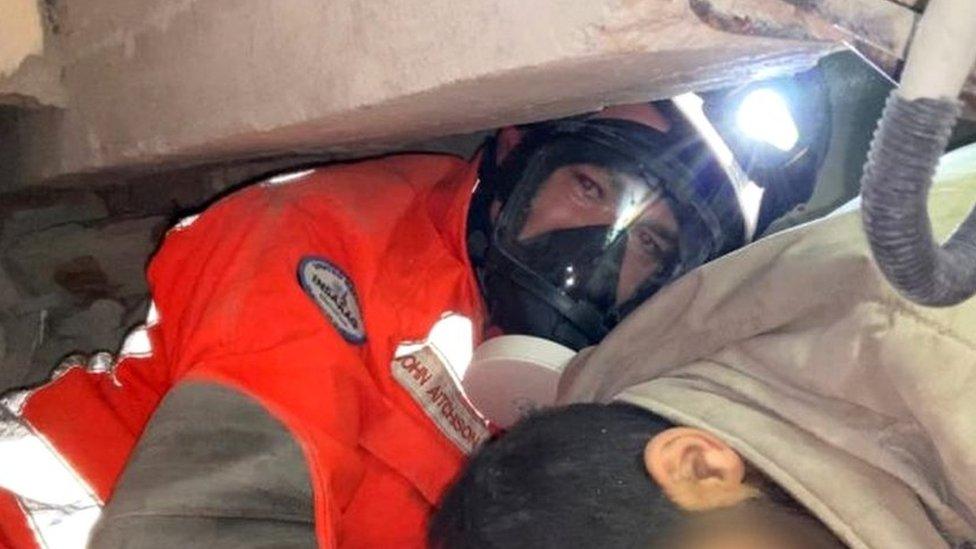
John Aitchison helps rescue a man trapped under rubble in Kahramanmaras
A team of Scottish firefighters say they will never forget the "biblical destruction" they saw in the rescue efforts after the Turkey Earthquake.
John Aitchison, Steven Adams, Tony Armstrong and Keith Gauld were deployed as part of a 77-strong UK International Search and Rescue (UKISAR) team.
They said they still found hope amid the devastation on the 10-day mission.
More than 44,000 people are confirmed to have lost their lives in south-eastern Turkey and northern Syria.
The UKISAR team was made up of firefighters and staff from 14 fire and rescue services.
"There was utter carnage, the biblical scale destruction, and we'll never forget," said Mr Aitchison.
"I'm still trying to process that. It's going to take a long time for the team to process that as we move forward."
Mr Aitchison is a watch commander based at the Portlethen Training Centre.
Crew commander Steven Adams is at the MacAlpine Road fire station in Dundee, while firefighters Mr Armstrong and Mr Gauld work out of North Anderson Drive fire station in Aberdeen.
The epicentre of the 7.8-magnitude quake on 6 February was in the city of Kahramanmaras.
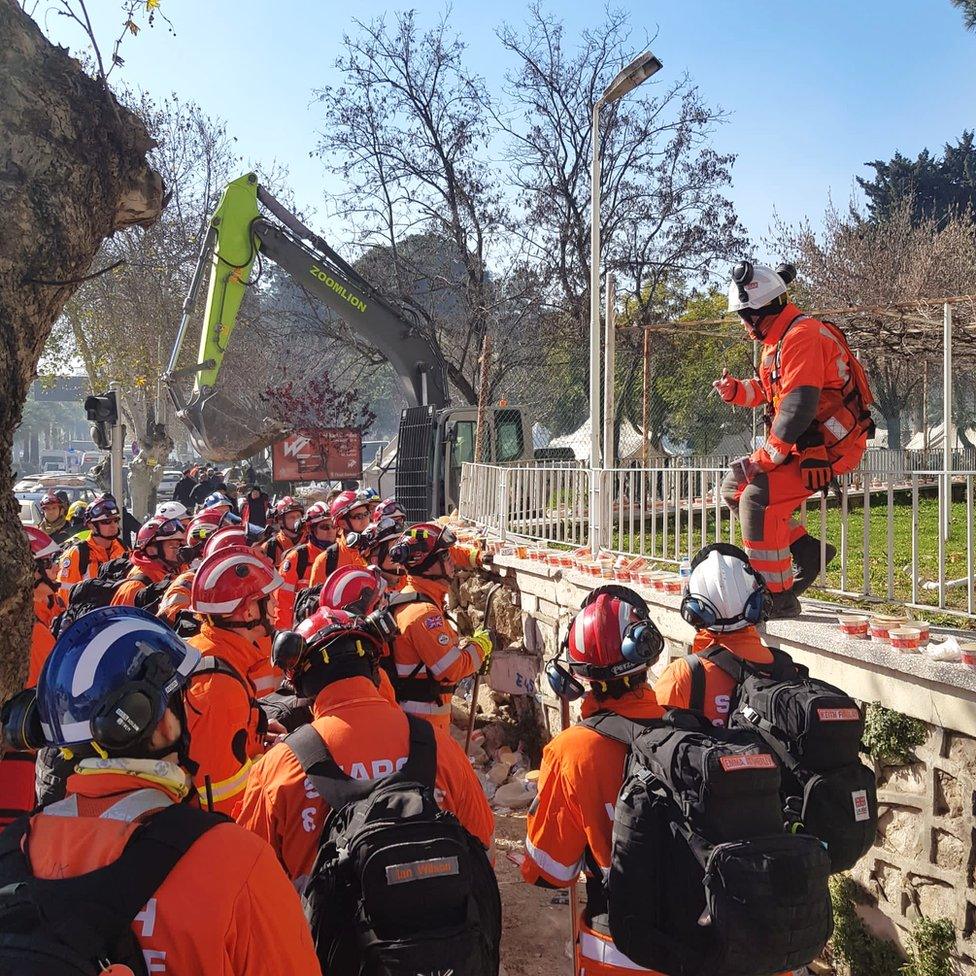
Steven Adams is pictured leading the rescue effort

Mr Aitchison said: "As we approached the city centre - bit by bit - we could see things getting worse and worse. It was like being on a film set.
"Multi-storeys looked like they had been picked up and thrown down on the ground again. Some buildings were upside down, some were on their side.
"There was people crying trying to get us to go and help. We had to focus on the potential of live causalities. We had to keep moving on. That was quite difficult for every team member to leave people who were crying for their relatives.
"We could only focus on saving live victims which was very difficult for us, but came away with the positive that we rescued eight people in the team ourselves and the dog also picked up on another three people that other teams subsequently rescued."
Steven Adams said the mood is the city was one of "hope and desperation".
He said: "They were looking to recover their family members and for any sort of assistance. Our role was to assist in the identification of viable work sites for live casualties.
"They were very grateful for our help at a time of devastation and at a time they thought all hope was gone.
"It's a massive honour. The responsibility I felt was massive. The bravery and commitment shown by all 77 personnel was something that can't be underestimated."
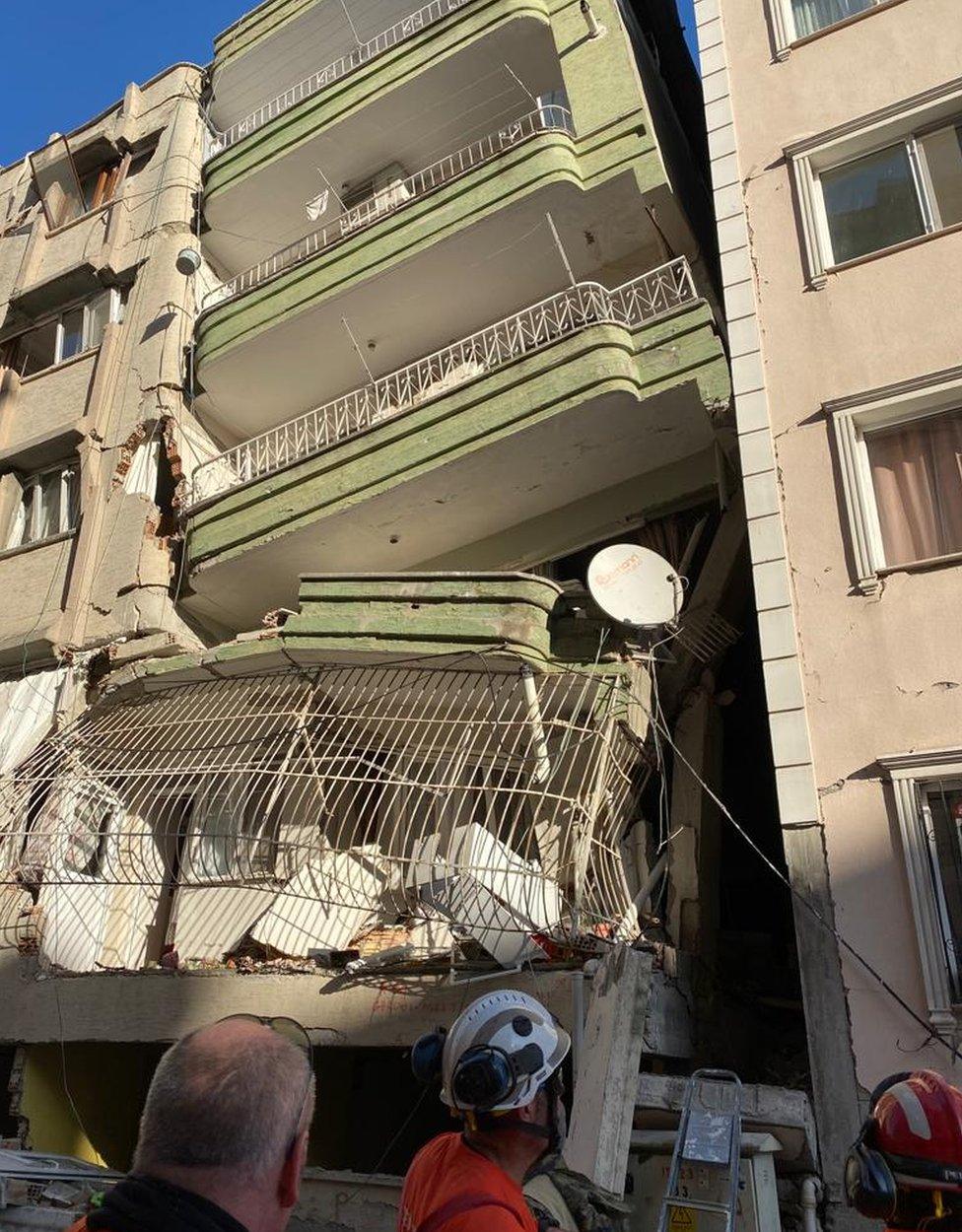
The team had to work in difficult conditions

Mr Armstrong said he was nervous about their undertaking.
"The locals were very nice people and you could understand their heartache," he said.
"My heart goes out to all the people who have suffered because of the earthquakes. Some people have nothing at all. They were sleeping in bus stops, in their cars, burning furniture to keep themselves warm at night."
Mr Gauld added: "My first impressions was the noise. There were ambulances doing circuits of the city. The scale of the destruction. Every type of building collapse. That was really what got me, the scale, every building was damaged or destroyed.
"My mind always goes to the strength and fortitude that the Turkish people showed. You feel very lucky that you have a home and a family to get back to and I do find myself reflecting on their struggle but how they addressed and faced up to it and how self sufficient they were."
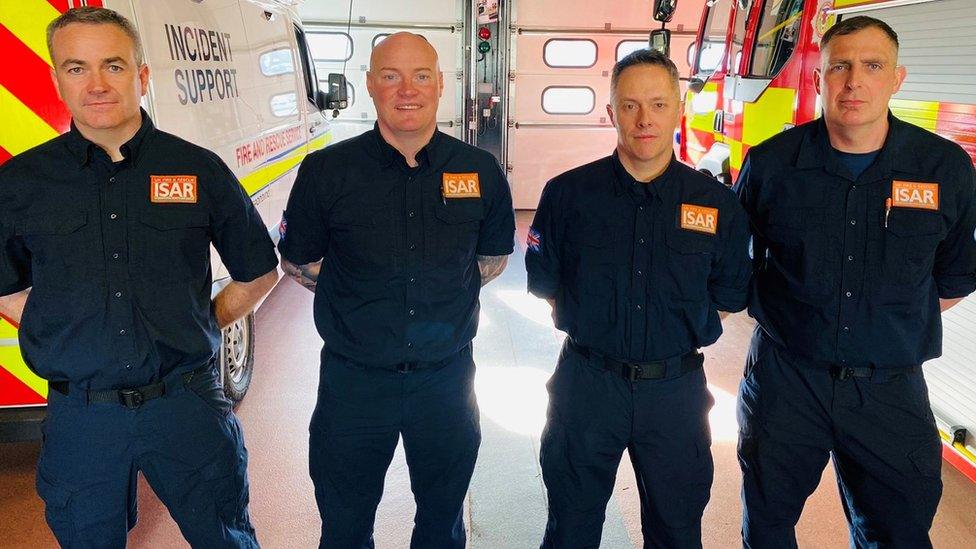
The rescue team members are now back in Scotland - (l-r) John Aitchison, Steven Adams, Keith Gauld and Tony Armstrong
Mr Aitchison and Mr Adams have been involved in previous search and rescue missions.
They were deployed as part of a team sent to Nepal in 2015 following an earthquake near Kathmandu.
It was the first ISAR operation for the other two firefighters.
While in Turkey they were based in a makeshift tented village in Hatay.
The tents will be left as part of a humanitarian aid effort to help those left with no homes.
Deputy assistant chief officer Bruce Farquharson is UKISAR team manager in Scotland.
"We're incredibly proud of the team," he said.
"They have left at short notice from Scotland, put their lives aside and gone across to Turkey into horrendous circumstances to help.
"This is why the team do what they do. To use the skills, training, expertise they've got to rescue lives. It fills us with a huge amount of pride and gives us a real incentive to keep doing what we're doing."
Related topics
- Published19 February 2023
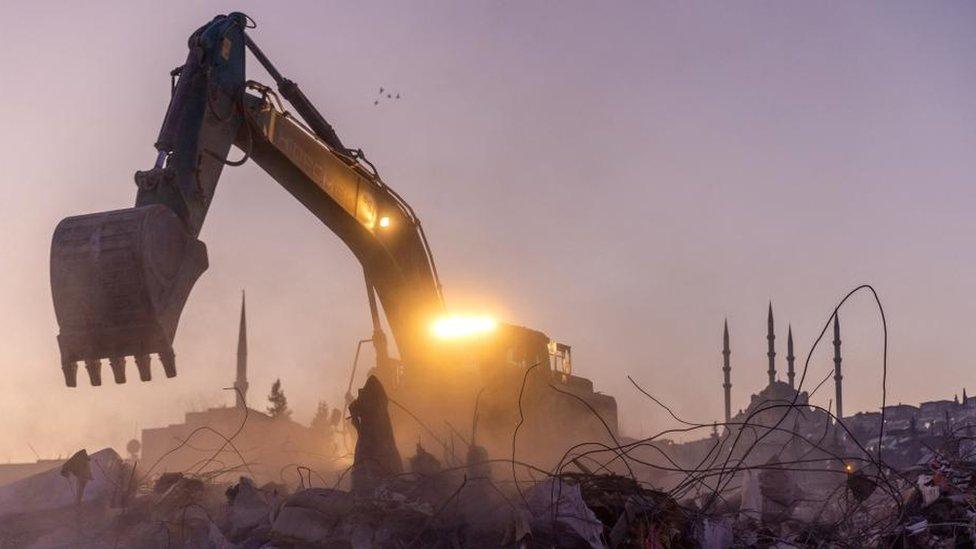
- Published7 February 2023
